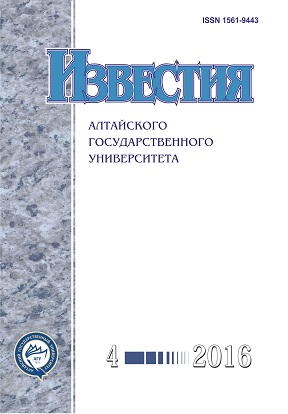History of Professional Training of the Police Staff in the Russian Empire in the 18th — Early 19th Centuries
Abstract
The article is devoted to the insufficiently studied and scientifically important problem of the creation the first regular police agencies on the Petersburg islands and Moscow settlements. The author outlines and analyzes the problem of recruitment of staff members resulting from the unwillingness to relocate, inadequate funding of the police officers and the absence of educational institutions. The conclusion is made that the educational level of higher and lower ranks of police officers was law; it forced the country’s leadership to find new forms of advanced education. One of such forms was systematically researching the existing legislation. The need to create specialized police educational institutions was highlighted by the end of the 19th — beginning of the 20th centuries in connection with the development of the education system in Russia, increasing the level of political and legal culture of the population. In the period under study there was no system of professional training so the number of the police officers with legal education was not sufficient. It certainly affected the quality of the police work in ensuring the rule of law and strengthening the rule of law in the Russian Empire. DOI 10.14258/izvasu(2016)4-13Downloads
Metrics
References
Климачков В.М., Шатилов С.П. Государственноправовая политика в области кадрового состава государственного аппарата в период правления Петра I // Актуальные проблемы борьбы с преступлениями и иными правонарушениями : материалы XI научно-практической конференции. - Барнаул, 2013. - Ч. 2.
Санкт-Петербургская столичная полиция и градоначальство: 1703-1903: краткий исторический очерк / сост. И.П. Высоцкий. - СПб., 1903.
Сизиков М.И. Становление и развитие общей регулярной полиции в России XVIII в. - М., 1992.
Полное собрание законов Российской империи. - СПб., 1831. - Т. 6. - № 4970.
Российский государственный архив древних актов. - Ф. 931. - Оп. 3. - Д. 10а.
Климачков В.М., Шатилов С.П. Становление и развитие юридического образования в России. - Барнаул, 2014.
Российское законодательство X-XX вв. / под общ. ред. О.И. Чистякова. - М., 1991. - Т. 5.
Психология и педагогика в профессиональной подготовке сотрудников органов внутренних дел. - М., 1992. - Ч. V.
Полное собрание законов Российской империи. - СПб., 1831. - Т. 20. - № 20576.
Российский государственный исторический архив. - Ф. 1286. - Оп. 1. - Д. 336.
Министерство внутренних дел (1802-1902) / под ред. С.А. Андрианова. - СПб., 1902.
Полное собрание законов Российской империи. - СПб., 1830. - Т. 36. - № 27699.
Анучин Е.Н. Исторический обзор развития административно-политических учреждений в России, с Учреждения о губерниях 1775 г. до последнего времени. - СПб., 1842. - Ч. 2.
Izvestiya of Altai State University is a golden publisher, as we allow self-archiving, but most importantly we are fully transparent about your rights.
Authors may present and discuss their findings ahead of publication: at biological or scientific conferences, on preprint servers, in public databases, and in blogs, wikis, tweets, and other informal communication channels.
Izvestiya of Altai State University allows authors to deposit manuscripts (currently under review or those for intended submission to Izvestiya of Altai State University) in non-commercial, pre-print servers such as ArXiv.
Authors who publish with this journal agree to the following terms:
- Authors retain copyright and grant the journal right of first publication with the work simultaneously licensed under a Creative Commons Attribution License (CC BY 4.0) that allows others to share the work with an acknowledgement of the work's authorship and initial publication in this journal.
- Authors are able to enter into separate, additional contractual arrangements for the non-exclusive distribution of the journal's published version of the work (e.g., post it to an institutional repository or publish it in a book), with an acknowledgement of its initial publication in this journal.
- Authors are permitted and encouraged to post their work online (e.g., in institutional repositories or on their website) prior to and during the submission process, as it can lead to productive exchanges, as well as earlier and greater citation of published work (See The Effect of Open Access).








